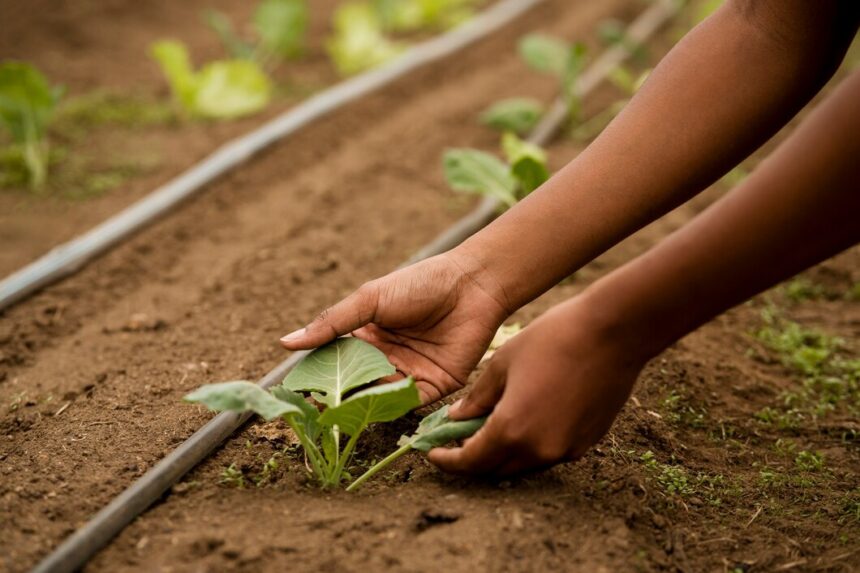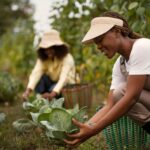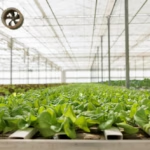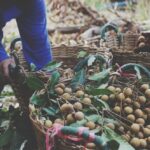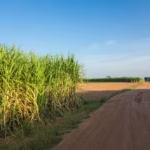Organic farming is gaining momentum globally as consumers become increasingly aware of the environmental and health benefits of sustainably grown produce. In South Africa, where agriculture plays a vital role in the economy, the transition to organic farming offers numerous advantages, from preserving soil health to promoting biodiversity. Here are ten techniques that South African farmers can implement to embrace organic farming practices:
1. Crop Rotation:
Crop rotation is a fundamental practice in organic farming that involves alternating the types of crops grown in a particular field over time. This technique helps prevent soil depletion, control pests and diseases, and improve soil structure and fertility. South African farmers can rotate crops such as legumes, grains, and vegetables to optimize nutrient cycling and reduce reliance on chemical inputs.
2. Cover Cropping:
Cover cropping involves planting specific crops, known as cover crops, to cover the soil surface between main crop rotations. Cover crops help prevent soil erosion, suppress weed growth, and enhance soil health by adding organic matter and nitrogen. Farmers in South Africa can use cover crops like legumes, grasses, and brassicas to improve soil structure and nutrient retention in their fields.
3. Mulching:
Mulching is a practice that involves applying organic materials, such as straw, leaves, or compost, to the soil surface around plants. Mulch helps conserve soil moisture, suppress weeds, regulate soil temperature, and improve soil structure. South African farmers can use mulching to conserve water in arid regions, reduce soil erosion on sloping land, and enhance soil fertility in nutrient-poor soils.
4. Composting:
Composting is the process of decomposing organic materials, such as crop residues, animal manure, and kitchen waste, into nutrient-rich compost. Compost serves as a natural fertilizer, providing essential nutrients to plants and improving soil structure and microbial activity. South African farmers can compost organic waste from their farms or communities to produce high-quality fertilizer for their crops.
5. Integrated Pest Management (IPM):
Integrated Pest Management (IPM) is a holistic approach to pest control that emphasizes prevention, monitoring, and non-chemical control methods. IPM strategies include crop rotation, companion planting, biological control (e.g., using beneficial insects), and cultural practices (e.g., trap cropping). South African farmers can adopt IPM techniques to minimize pesticide use and protect beneficial insects and pollinators.
6. Water Conservation:
Water conservation is essential for sustainable agriculture, particularly in water-stressed regions like South Africa. Farmers can implement water-saving techniques such as drip irrigation, rainwater harvesting, and soil moisture monitoring to optimize water use efficiency and minimize water wastage. By conserving water, farmers can mitigate the impact of drought and climate change on their crops.
7. Agroforestry:
Agroforestry integrates trees and shrubs into agricultural landscapes to enhance biodiversity, improve soil fertility, and provide additional income streams for farmers. Agroforestry systems can include alley cropping, windbreaks, and agroforestry parklands, depending on the specific agro-ecological conditions. South African farmers can incorporate agroforestry practices to diversify their farming operations and promote ecosystem resilience.
8. Livestock Integration:
Integrating livestock into crop production systems can provide multiple benefits, including nutrient recycling, weed control, and diversified income streams. South African farmers can practice rotational grazing, where livestock are moved periodically between paddocks to prevent overgrazing and promote soil health. Additionally, integrating livestock manure into composting or soil amendment processes can enhance nutrient cycling and fertility.
9. Biological Soil Amendments:
Biological soil amendments, such as microbial inoculants and biofertilizers, can enhance soil health and promote plant growth through the introduction of beneficial microorganisms. These amendments can improve nutrient uptake, suppress soil-borne pathogens, and enhance soil structure. South African farmers can use locally sourced microbial inoculants or biofertilizers to boost soil microbial activity and productivity.
10. Organic Certification:
Obtaining organic certification is essential for South African farmers wishing to sell their produce as organic and access premium markets. Organic certification ensures compliance with strict organic standards and regulations, including restrictions on synthetic inputs and genetically modified organisms (GMOs). Farmers can seek certification from accredited organic certification bodies to demonstrate their commitment to organic farming practices and market their products with confidence.
In conclusion, organic farming offers South African farmers a sustainable and environmentally friendly approach to agricultural production. By implementing techniques such as crop rotation, cover cropping, composting, and integrated pest management, farmers can enhance soil health, conserve water, and reduce reliance on synthetic inputs. Embracing organic farming practices not only benefits the environment and human health but also contributes to the long-term viability of agriculture in South Africa.

